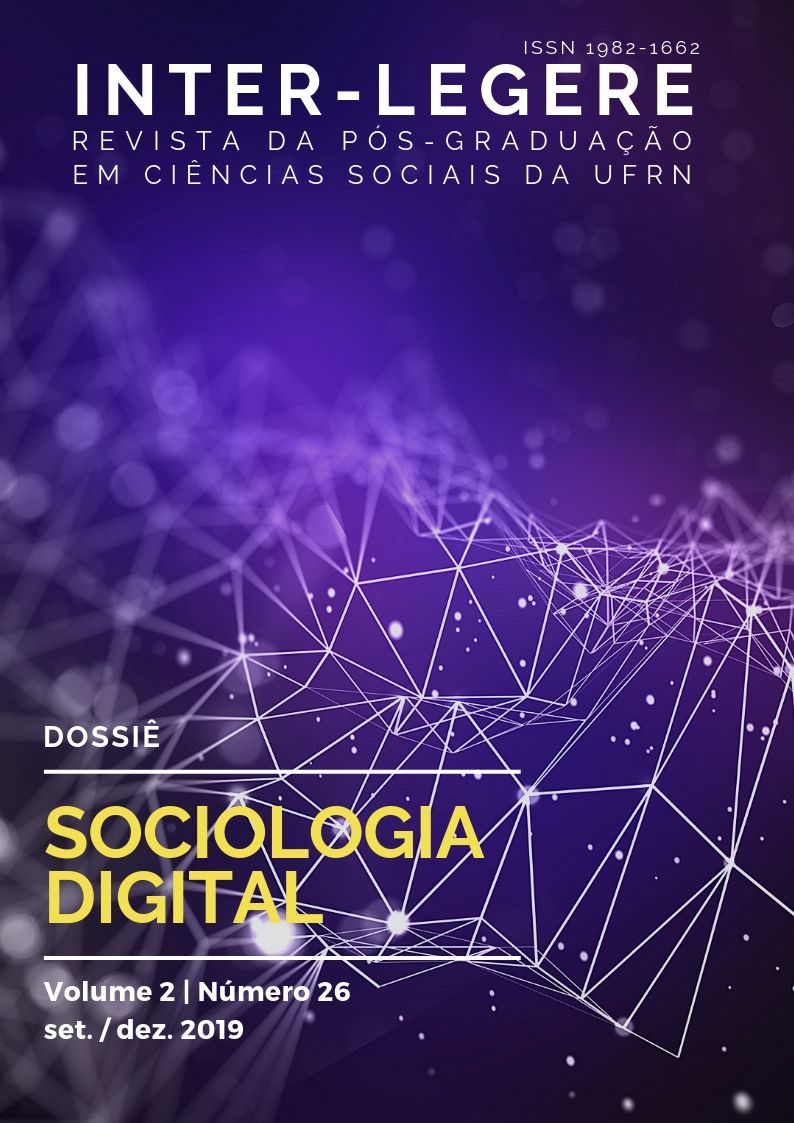ENTRE A ESPETACULARIZAÇÃO DA VIDA COTIDIANA E O PRAGMATISMO DA CLASSE TRABALHADORA
elementos teóricos para a compreensão das subjetividades no YouTube
DOI:
https://doi.org/10.21680/1982-1662.2019v2n26ID15946Resumen
Exploramos neste artigo argumentos teóricos que nos auxiliam a compreender as características subjetivas mobilizadas na produção de vídeos para YouTube. A crescente espetacularização da vida cotidiana é percebida no contexto de produção de conteúdos como novas relações de trabalho que se desenvolvem mediadas por tecnologias digitais. A criação de diários extimos é tomada como estratégia pragmática da classe trabalhadora, um processo de reconfiguração subjetiva que ocorre na mobilização de personalidades como estruturas vinculantes da produção de valor na era da superexposição da intimidade. Ao invés de trilharmos o caminho das críticas que relacionam a proliferação de conteúdos amadores com um suposto declínio cultural, buscamos explorar essa expansão como um dado empírico que ilumina fenômenos sociais constituintes do capitalismo flexível, no qual os trabalhadores são cada vez mais instados a empreender, utilizar novas tecnologias digitais e se expor através de um processo de monetização de suas imagens, vozes, gestos, ideias e práticas veiculadas nos vídeos. Tal instrumentalização das subjetividades em prol da produção de valor é investigada à luz das teorias de Charles Taylor, David Riesman, Byung-Chul Han e Paula Sibília. Concluímos que os estudos em sociologia digital se beneficiam da articulação teórica com os autores apresentados e que explorações entre a sociologia digital e a sociologia do trabalho revelam uma promissora agenda de pesquisas.


 Português (Brasil)
Português (Brasil) English
English Français (Canada)
Français (Canada) Español (España)
Español (España)





